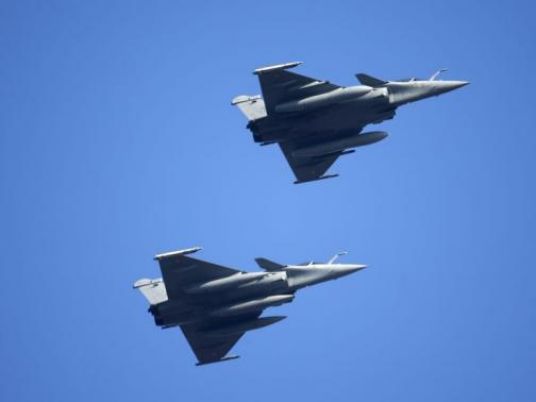
The arms deal that eluded France for 20 years, its first foreign order for the Rafale combat jet, came with a Thursday evening phone call crowning weeks of diplomacy carried out with unusual speed and stealth.
Egypt's decision to buy 24 of the Dassault Aviation fighters follows failures by successive French governments to sell the plane and leapfrogs three years of inconclusive talks for a 126-plane contract with India.
By giving the green light via his defence minister on Thursday, Egyptian President Abdel Fattah al-Sisi has boosted a defence project that is barely ticking over in a half-empty production hall.
"It isn't the deal we were expecting but it won't do any harm to the Rafale to have an export order under its belt. It gives France a little more breathing space," said Douglas Barrie, a senior fellow at London-based thinktank IISS.
Diplomats say the deal suits both Cairo and Paris geopolitically with both particularly invested in the fight against jihadist groups in North Africa.
Sisi has been looking to upgrade Egypt's military hardware over fears Islamist militias in neighbouring Libya could take control and directly threaten Egypt.
"Egypt needs planes quickly," said Patricia Adam, president of the French parliament's defence committee. "You just need to take a look at what's happening at its border. They are especially worried by what's happening in Libya."
France has urgently been looking for an export buyer to prevent Rafale production lines from going cold after the military slowed deliveries due to budget problems.
Negotiations began in September after France's defence minister Jean-Yves Le Drian visited Cairo, hoping at best to interest Egyptian authorities in the modernisation of its existing Mirage 2000 jets.
The phlegmatic Breton politician, a long-time ally of French President Francois Hollande, had been actively courting potential Rafale buyers. But Egypt was not on the list of prospects containing India, Qatar, Malaysia and Kuwait.
"On the Rafale, when Sisi told Le Drian he was interested it came as a complete surprise," said a French diplomat.
Talks were kept to a tight circle, but in a TV interview during a visit to Paris in November, Sisi hinted at the condition for striking new deals: financing support.
"Will France better understand our economic situation or not? We shall see," he told France 24.
Diplomats say talks took a significant step forward on the sidelines of the inauguration of Saudi King Salman last month, where Sisi told Hollande he wanted to move ahead quickly.
France said on Friday over half the purchase price would be financed by French banks with a state-backed Coface guarantee.
The rest must be paid by Egypt but French media report this will be funded in part by at least one Gulf state.
GULF ROLE
Libya is split between militias loyal to an internationally recognised government, which Egypt and United Arab Emirates support, and those allied to a rival government based in Tripoli that includes Islamist groups, and which has been backed by Turkey and Qatar.
The UAE sees Egypt's leadership as a firewall against militants and has given Cairo financial and military support, Western and Arab diplomats say.
Saudi Arabia is sympathetic to Egyptian and UAE involvement in Libya but is not believed to have played any direct role.
While Sisi has been widely criticised for human rights violations and quashing opposition to his government, France has taken a relatively pragmatic approach to the new presidency.
It considers Cairo's new leader as a legitimate interlocutor who can ensure regional stability. Amnesty International has urged France not to sell arms to Sisi's Egypt.
Once a top recipient of U.S. military aid, Egypt lost most of its $1.3 billion (0.84 billion pounds) a year package after the 2011 popular uprising that toppled former President Hosni Mubarak.
With the Rafale deal, Egypt, which sidelined Paris under the Muslim Brotherhood, is almost certain to be France's biggest arms client this year.
Whether that translates into a "snowball" of more Rafale sales, as Dassault Aviation hopes, will be debated at next week's Aero India air show ahead of a visit to France by Indian Prime Minister Narendra Modi in April.
"The deal may help break the logjam vis a vis other customers since they are now on notice that if they want to have the Rafale they may have to wait for it," said Francois Heisbourg, special adviser at the Strategic Research Foundation, who was involved in the Mirage 2000 sale to Egypt in 1982-83.
Others warn it could slow, rather than speed up, an Indian deal that seems deadlocked over requests for French guarantees.
"You get the impression this tells you that Dassault and the French government don't believe the Indian deal will get signed any time soon," said Francis Tusa, editor of Defence Analysis.
"Dassault have been playing hard ball from day one. Now they have got another customer that will tide them over to the resumption of French domestic purchases with none of the risks of the Indian contract. It places the ball in India's court."




